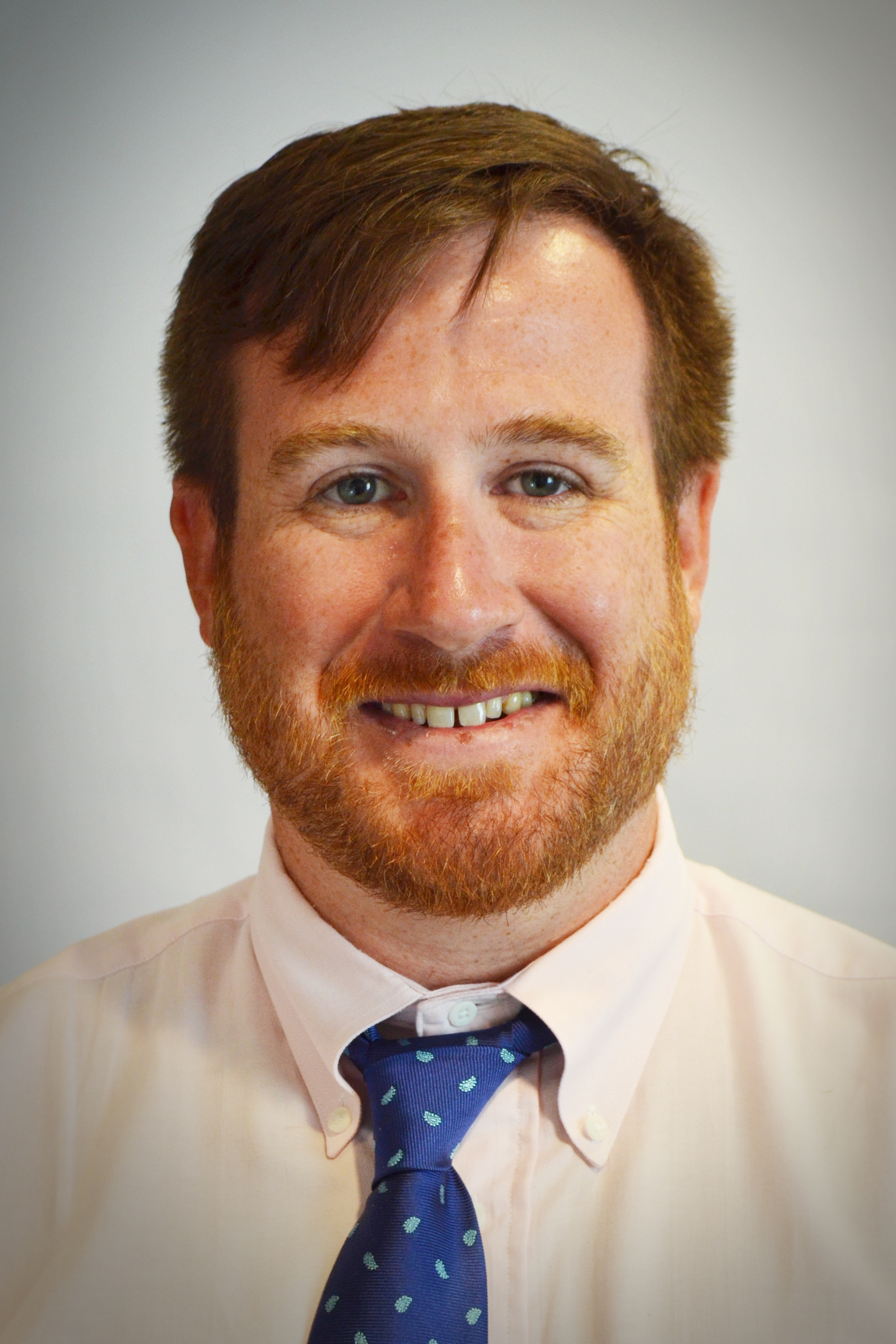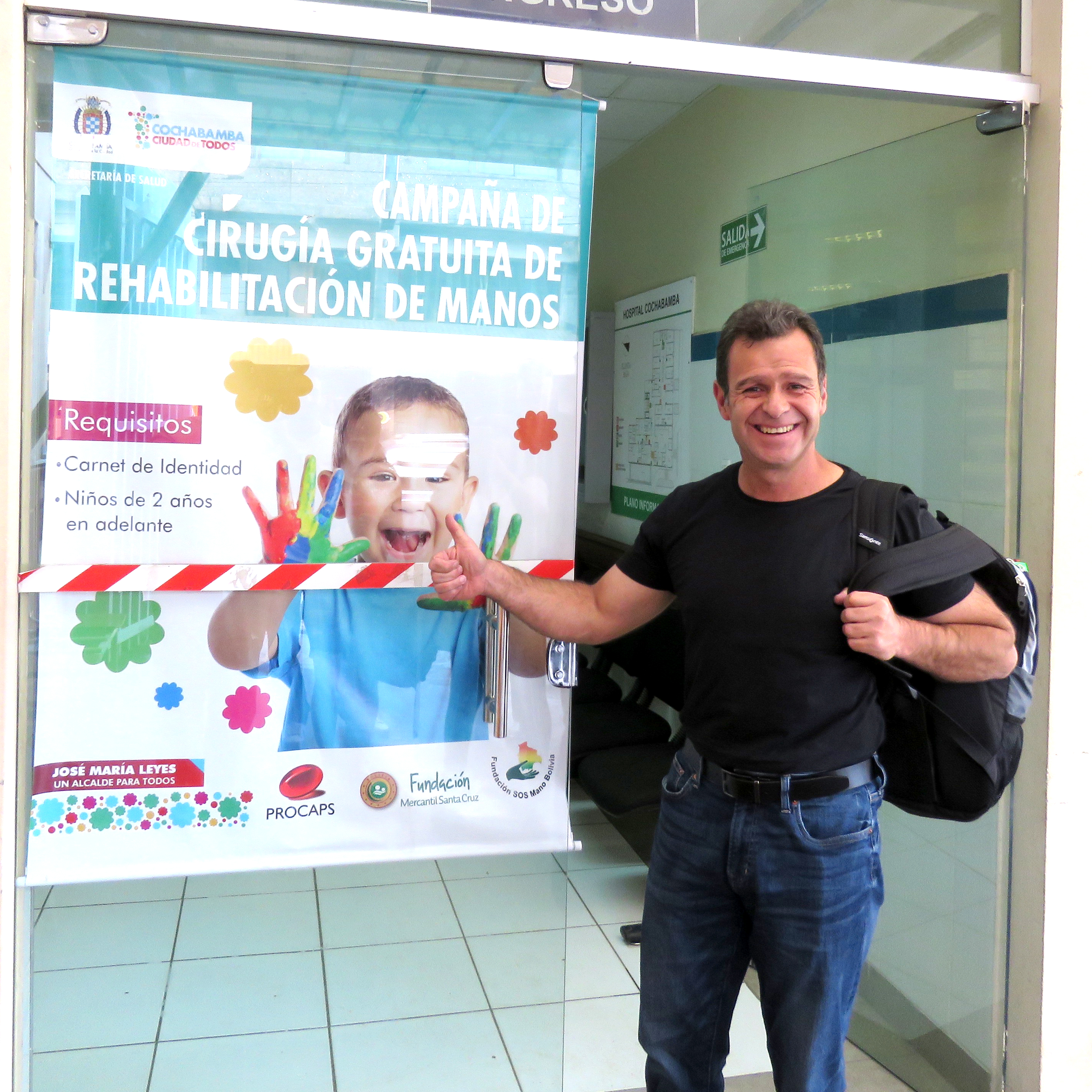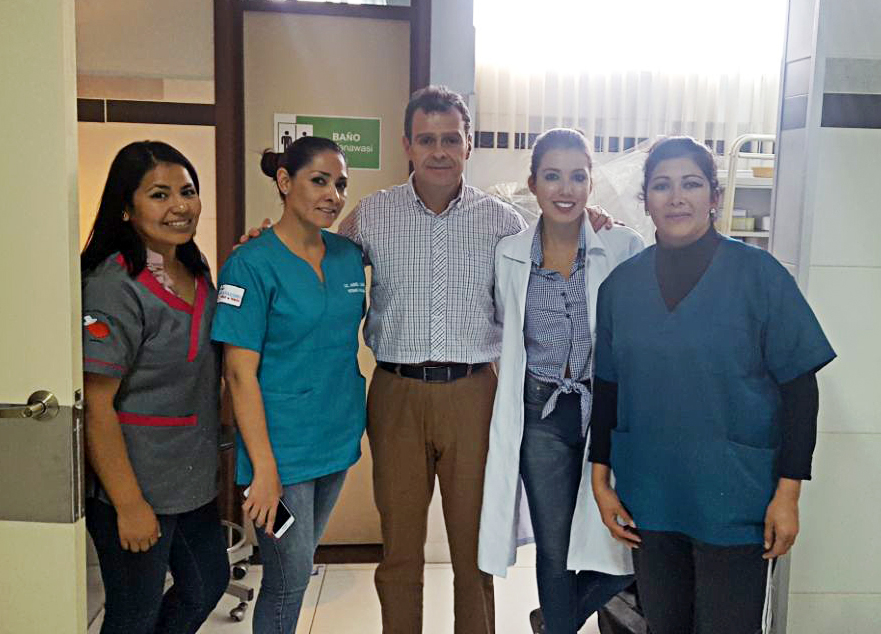
Bolivia Hand Surgery Outreach

 By: Ross Feller, M.D.
By: Ross Feller, M.D.
Hand and Upper Extremity Surgery Fellow
University of Utah Department of Orthopaedics
During the month of February 2018, Dr. Doug Hutchinson, M.D., Lana Keizer, OTR/L, CHT and I had the opportunity to travel to Cochabamba, Bolivia to provide hand surgery outreach. Over the course of a week, we saw over one hundred clinic patients and provided surgical services for sixteen patients. Dozens of patients were provided hand therapy services, including splinting and rehabilitation following injury or surgery. This was Dr. Hutchinson’s seventh trip to Bolivia. The development of his initiative in this country is a fascinating story of how one person can connect with the local community in a resource poor environment and help improve the way healthcare is delivered.
 About 16 years ago, Dr. Hutchinson was participating in an outreach trip in Bolivia when he heard of Dr. Jorge Terrazas. Dr. Terrazas is the only formally trained hand surgeon in Bolivia, a country with a population over 10 million. Dr. Terrazas had been hosting outside groups for years working with them to provide much needed hand services to the underprivileged people in Bolivia.
About 16 years ago, Dr. Hutchinson was participating in an outreach trip in Bolivia when he heard of Dr. Jorge Terrazas. Dr. Terrazas is the only formally trained hand surgeon in Bolivia, a country with a population over 10 million. Dr. Terrazas had been hosting outside groups for years working with them to provide much needed hand services to the underprivileged people in Bolivia.
At least a third of Bolivians live in poverty, and government-sponsored healthcare is not provided until the age of 65. As a result, access to appropriate treatment for even the most basic of conditions is severely limited. Having the foresight to know that a local contact was critical, Dr. Hutchinson reached out to Dr. Terrazas and the two began to form a relationship and friendship that lasts to this day.
Early on Dr. Terrazas wanted to find a way to continue his work without having to rely on foreign help. After many years of his continued dedication and developing political influence, Dr. Terrazas was able to enlist the financial aid of a local organization, Fundacion Mercantil Santa Cruz. With the support of this national bank, the “SOS Manos” project was created to provide free hand surgical services to the people of Bolivia.
This type of support is a very unique circumstance, where a country foundation utilizes donated money from Bolivians for Bolivians. Multiple times a year, Dr. Terrazas visits different regions of Bolivia, and now along with Dr. Hutchinson and other foreign organizations he is able to perform hand surgeries that would otherwise not be possible. We are honored to be asked to help Dr. Terrazas on his continued mission yearly.

Our team worked alongside Dr. Terrazas’ team of Bolivian nurses and one anesthesiologist to provide exceptional care. This small team composed of local and foreign providers turned out to be an ideal combination. We worked, ate, laughed, and were satisfied, frustrated, humbled, and hopeful TOGETHER. Through the many ups and downs of our trip it was amazing to observe how much could be accomplished in such a short period of time, and how close people from drastically different cultures can become if they share a similar vision and goal.

Patient cases treated included congenital hand conditions such as thumb duplication, arthrogryposis, and syndactyly. The results of neglected hand and upper extremity trauma are common throughout the developing world. We performed a number of tendon transfers and flaps to optimize and increase the function of these patients.
The case that left the biggest impression in my mind was of a 30 year old woman who had been in a car accident resulting in a right forearm amputation and near amputation of the left wrist. Although her left hand was saved there were residual joint contractures that severely limited her ability to function. After meeting with her and evaluating her case, we decided to perform surgery on her remaining left hand to release the contractures of her fingers.
All surgeries come with risk and for this patient, only having one remaining hand and relying on it for all of her needs, this surgery was intimidating. But there was potential for huge benefits and the patient decided to proceed. After the surgery, the patient was shown the early results. Her finger range of motion and contracture deformity had been drastically improved. She was immediately brought to tears, and it was clear that we had changed the course of this young woman’s life forever.

This is the beauty of hand surgery outreach in underserved communities: with little more than a scalpel and some suture incredible things can be achieved. I believe one of the most important and difficult aspects of this kind of work is providing follow up care for patients. It is easy to show up for a week, operate, and then leave. It is much more challenging to establish continuity. In my opinion, it is for this reason that many healthcare missions have limited success in the long term.

Luckily, Dr. Terrazas has been returning to Cochabamba on a biweekly basis to evaluate and provide ongoing care for the surgical patients we treated. During our time in Bolivia, our certified hand therapist Lana Keizer was able to begin training local therapists with an interest in hand surgery. This enabled our patients to have access to providers who could continue appropriate rehabilitation, splinting, etc. This continuity in care is what will ultimately determine the success of our work in Bolivia.
The viability and success of “mission trips” such as this is only possible with strong departmental and financial support. I am impressed with the amount of international outreach interest amongst the staff of the University of Utah Department of Orthopaedics, and would encourage more residents, fellows and faculty to partake in experiences such as this. I would also like to extend my thanks and gratitude for immense support from Art Swindle and the Martha Ann Dumke Healy Endowed fund for Humanitarian in Orthopaedics, and the members of the Fundacion Mercantil Santa Cruz for providing the critical funding required to keep initiatives like this going.
It is our duty as physicians and humans to help and heal those less fortunate than ourselves, both at home and abroad. In a world that continues to grow smaller by the day, it is becoming increasingly easier to attain this goal if we pledge to devote just a small fraction of our time and resources to this end.
